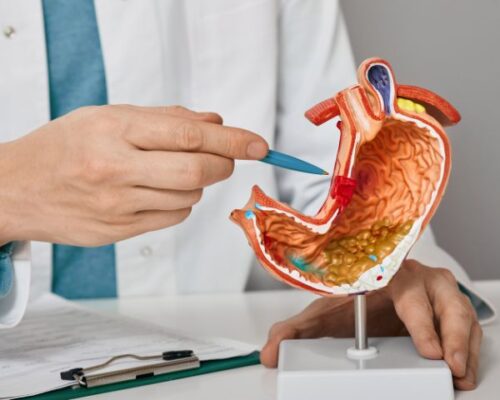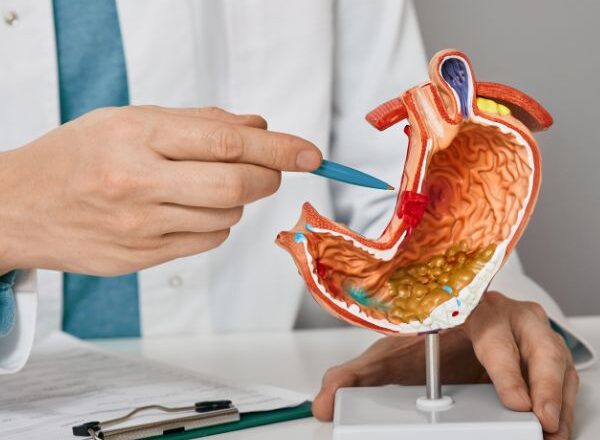When are stomach cramps concerning?
Find out when stomach pains ar a cause for cocern and when they aren’t.
When are stomach cramps concerning?
Learn about the different kinds of bowel issues that children may face

How to know if your stomach pain is a cause for concern
Stomach cramps are a common experience for many individuals of all ages. While mild cramping might be related to something as simple as gas or indigestion, more intense or persistent pain could signal a serious underlying issue. Knowing the difference between common discomfort and a sign of a more serious condition is crucial for your health.
How to know if your stomach pain is a cause for concern
Stomach cramps are a common experience for many individuals of all ages. While mild cramping might be related to something as simple as gas or indigestion, more intense or persistent pain could signal a serious underlying issue. Knowing the difference between common discomfort and a sign of a more serious condition is crucial for your health.

Common causes of stomach cramps that are not always serious
Many factors contribute to stomach pain that may not require medical intervention. These causes are usually temporary and resolve on their own:
Gas and bloating
Trapped gas in the stomach or intestines is a leading cause of cramping. This is usually harmless and can be relieved by burping or passing gas.
Food intolerance
Food intolerances can cause stomach pain after consuming certain foods. These cramps often subside once the trigger food is eliminated.
Constipation
When bowel movements become irregular, the digestive system can become backed up with faecal matter, leading to cramps and abdominal discomfort.
Menstrual cramps
Menstrual cramps happen during the menstrual cycle. These cramps are usually not dangerous, but they can be intense and affect daily activities.
Stress
Emotional stress or anxiety can manifest as stomach pain. This is a result of the gut-brain connection, where stress affects the digestive system.
Overeating or heavy meals
Eating meals with a lot of fat can place a lot of strain on the digestive system, in some cases, this could cause temporary cramping.
In many of these cases, the cramps may subside with time and lifestyle adjustments, such as dietary changes or stress management techniques.
When should you be concerned about stomach pain?
While most stomach cramps are mild and self-limiting, there are instances when the discomfort can be a sign of a more serious health issue. If you experience any of the following symptoms, seek medical attention as soon as possible:
- Severe or persistent pain: If your cramps don’t go away or if the pain intensifies over time, this could indicate a more serious problem.
- Pain radiating: Pain that spreads to the back, chest, or shoulder may suggest a serious condition, such as a cardiac attack or gallbladder issue.
- Blood in stool or vomit: Blood in your stool or vomit is a strong indication of gastrointestinal bleeding, which requires urgent medical attention.
- Unexplained weight loss: If you are losing weight without trying, this could indicate a chronic condition like cancer or gastrointestinal disease.
- Changes in bowel movements: Severe diarrhoea or constipation that persists for several days should not be ignored and must be looked into.
- Pain that worsens with movement: If the pain becomes worse when you move, it could indicate a serious condition such as appendicitis or gallstones.
If any of these symptoms accompany your stomach pain, it’s important to seek medical advice as soon as possible.

When should you be concerned about stomach pain?
While most stomach cramps are mild and self-limiting, there are instances when the discomfort can be a sign of a more serious health issue. If you experience any of the following symptoms, seek medical attention as soon as possible:
- Severe or persistent pain: If your cramps don’t go away or if the pain intensifies over time, this could indicate a more serious problem.
- Pain radiating: Pain that spreads to the back, chest, or shoulder may suggest a serious condition, such as a cardiac attack or gallbladder issue.
- Blood in stool or vomit: Blood in your stool or vomit is a strong indication of gastrointestinal bleeding, which requires urgent medical attention.
- Unexplained weight loss: If you are losing weight without trying, this could indicate a chronic condition like cancer or gastrointestinal disease.
- Changes in bowel movements: Severe diarrhoea or constipation that persists for several days should not be ignored and must be looked into.
- Pain that worsens with movement: If the pain becomes worse when you move, it could indicate a serious condition such as appendicitis or gallstones.
If any of these symptoms accompany your stomach pain, it’s important to seek medical advice as soon as possible.

Common medical conditions associated with abdominal pain and cramps
Several medical conditions are commonly associated with abdominal pain and stomach cramps. These conditions may require medical treatment and should be monitored carefully:
Irritable bowel syndrome (IBS)
IBS can cause chronic abdominal cramps, bloating, and irregular bowel movements.
Gastrointestinal Infections
Infections can cause stomach pain, often accompanied by diarrhoea and vomiting.
Gallstones
Pain from the gallbladder, especially after eating fatty foods, can be severe and sharp.
Appendicitis
Sudden, sharp pain in the lower right abdomen is a well-known symptom of appendicitis.
Gastritis or ulcers
Inflammation or ulcers in the stomach lining can cause dull or burning pain in the abdomen.
Inflammatory bowel disease (IBD)
Chronic IBD can cause cramping, along with diarrhoea and weight loss.
Food poisoning
Severe cramps associated with vomiting and diarrhoea are often signs of food poisoning.
Identifying the root cause of your stomach pain is essential for proper treatment and management.
Prioritise your digestive health today
If you’re dealing with ongoing bloating, stomach cramps, or changes in bowel habits, you should consider taking a closer look at your gut health. Conditions such as IBS, IBD, and gastro-oesophageal reflux disease (GORD) often trigger these symptoms, and consulting a gastroenterologist can help uncover the underlying causes. With personalised guidance, a specialist will address your needs to restore balance, relieve gastrointestinal symptoms, and enhance your digestive well-being for lasting health.
Book a consultation with a reputable Sydney gastroenterologist and make your first move toward feeling your best and living comfortably.

Prioritise your digestive health today
If you’re dealing with ongoing bloating, stomach cramps, or changes in bowel habits, you should consider taking a closer look at your gut health. Conditions such as IBS, IBD, and gastro-oesophageal reflux disease (GORD) often trigger these symptoms, and consulting a gastroenterologist can help uncover the underlying causes. With personalised guidance, a specialist will address your needs to restore balance, relieve gastrointestinal symptoms, and enhance your digestive well-being for lasting health.
Book a consultation with a reputable Sydney gastroenterologist and make your first move toward feeling your best and living comfortably.

FAQs
Can stress really cause stomach cramps?
Yes, stress can significantly impact your digestive system, leading to symptoms like stomach pain. The gut-brain connection means that emotional stress can trigger digestive issues such as bloating, cramping, and even changes in bowel movements.
Are there any home remedies for mild stomach pain?
For mild stomach pain, some effective home remedies include drinking warm water or herbal teas (like ginger or peppermint), applying a heating pad to the abdomen, and practising relaxation techniques like deep breathing to alleviate discomfort.
What foods should I avoid if I frequently get stomach pain?
If you experience frequent stomach pain, it may be helpful to avoid foods that are known to irritate the digestive system, such as fatty foods, caffeine, spicy foods, dairy (if lactose intolerant), and certain high-fibre foods that can cause bloating.
Is it normal to experience stomach pain after exercising?
Mild stomach pain after exercise can occur due to dehydration, overeating before a workout, or high-impact activities. To prevent cramps, make sure you’re well-hydrated, avoid heavy meals before exercise, and warm up properly before physical activity.
